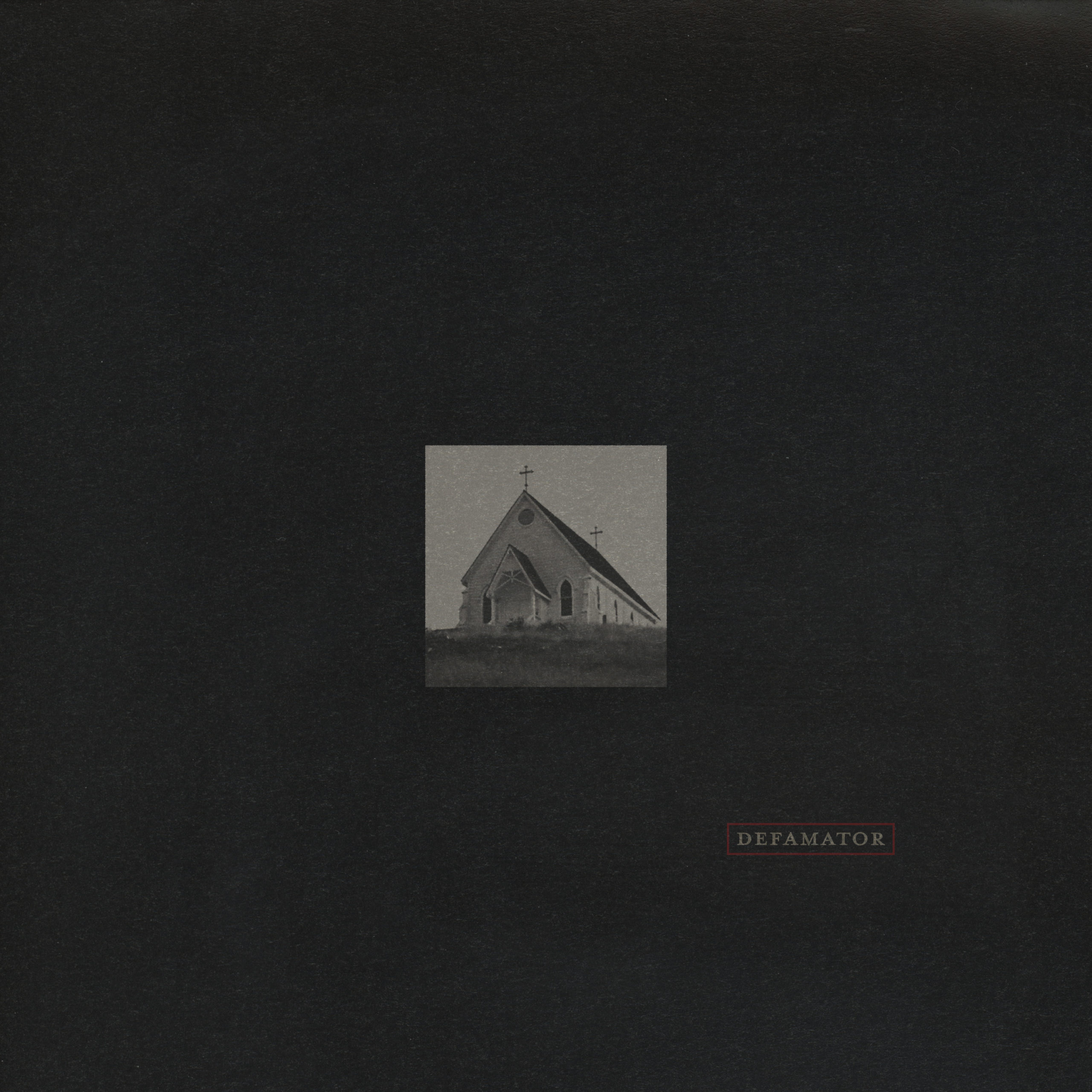
Defamator
—
Out May 12, 2023
—
Taxi Gauche Records



Raised by musicians in Los Angeles, surrounded by their work in recording studios and at open mics from an early age, there has never been a moment in the memory of Chloe Gallardo where there wasn’t the ambition to perform. “I would always get this feeling in my chest watching an artist I really like”, she explains of her formative years. “It was a mix of a longing to do what they do and also knowing that I was completely capable of achieving that. I can’t really remember a point in my life where I didn’t want to create my own music.”
Releasing her first music while still only a teenager (2017’s Hey Kid EP), Gallardo spent the subsequent years eeking out a series of accomplished singles: ‘Love Sick’; ‘Fool’s Keeper’; ‘Rêveries Nocturnes’ – each one making the prospect of a more comprehensive release more tantalising than the next.
Now, with the launch of her debut album Defamator via Taxi Gauche Records, Gallardo has achieved by far her boldest, and most mature collection of work to date. Emblematic of a genre-mish-mash of “dark shoegaze-inspired indie rock”, the ten-track set journeys the listener through a tightly-strung sequence of cautionary tales. Detailing her bruising experiences of relationship trauma and abusive partners, Defamator eases the listener across these disturbing subjects via the tranquil transcendence of its song.
Album opener “Bloodline” epitomises this bittersweet modus operandi. 15 seconds into its dainty acoustic strum , Gallardo adamantly sulks “I’m fucked up” – the salvo of a lyric about feeling like a family disappointment. As the track lifts up into a cascading gaze-pop rush, recalling the likes of Bachelor and Snailmail, we’re blessed with a pristine elegance that belies the song’s raging core. ”I have always written music this way.”, she says of this fundamental contradiction. ”It’s funny because I try so hard to write darker-sounding songs and they always come out way too pretty. So I’ve resorted to writing the most gut-wrenching and intense lyrics to compensate.”
Written mostly during peak-pandemic times in Gallardo’s bedroom – (“you can hear how scared and alone I was.”) – the songs that made their way onto Defamator arose from a concerted period of healing. Drawing from the teachings of therapy, the songwriting process gave her the means to channel some deeply entrenched emotional scars. “In my first few sessions my therapist told me that I needed to let myself get angry at the things that have happened to me and the way people have treated me.”, she explains. “It really unlocked something in me. So this album is me allowing myself to be angry at a handful of people in my life that have mistreated me.”
This venting of anger is implicit throughout the record. The album’s title – Gallardo’s own neologism – uses the concepts of “defamation” and “defamatory speech” to innovate a kind of pejorative accusation. As a result, it is like we are actively listening to Gallardo forcefully take command of her past. Of the title track she explains:“The song ‘Defamator’ is about someone who spoke untruthful things about me in order to manipulate me and the way people perceived me and I felt that was an underlying theme in most of the album.”
Recorded at Jazzcat Studios in Long Beach California with Jonny Bell, Defamator marks Gallardo’s first time in a “legitimate recording studio”. And it shows. Bell’s production is vital moving part here. There’s more stripped back affairs – ‘There Will Be Blood”;”The Way’ – songs which gently seethe and purr like Grouper’s spectral dream-pop; Gallardo’s fluttering folk-ish voice gloriously pushed to forefront; crunching overdrive solos heavily muted in the background like a strangled cries. Then there’s the album’s colossal centrepieces – “New Jersey”; “To See You Go”; Last Dance” – the slow-steepling builders awash with wailing shoegaze power (with Gallardo’s own “Horror Movie Screams” – in the case of “New Jersey”)
And between these two extremes, there’s the soft electronic filling, the abstract interlude tracks, that faulty omnichord that could barely survive a take on “God is Dead”, but which captures the fractured atmosphere perfectly. Here, Defamator takes direct influence from Broadcast’s 2005 classic Tender Buttons. It’s a fitting reference point too: the unparalleled beauty of Broadcast’s final great statement was itself borne in spite of its own emotional tumult of band dissolution and marital divorce.
But beneath all this finesse, nuance and polish, it’s the power and dedication of Gallardo’s songwriting that shines the brightest. “It’s pretty weird releasing them now because I was so sad and broken at that time of my life and now my life is so different.” she confesses, “ I still feel it’s important to release the songs though. I grew into the person that I am from those experiences and maybe someone out there can relate to what I’ve written about.”